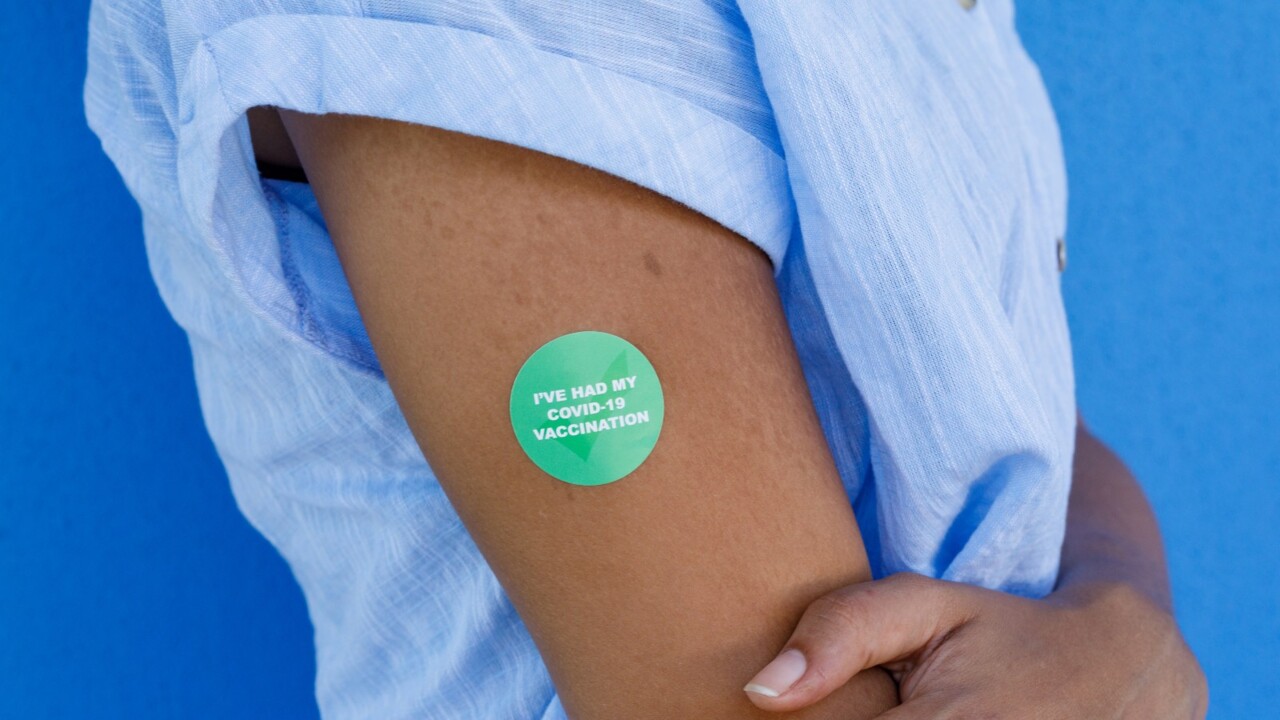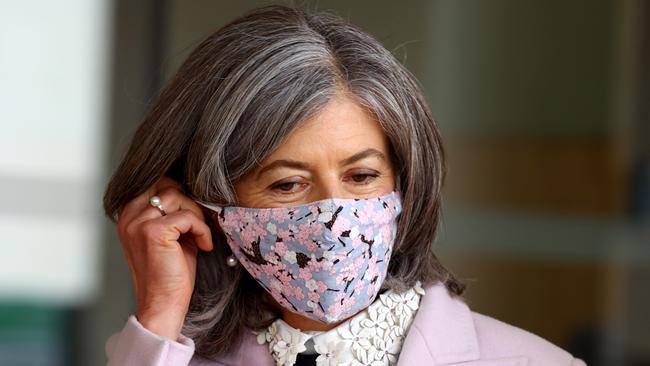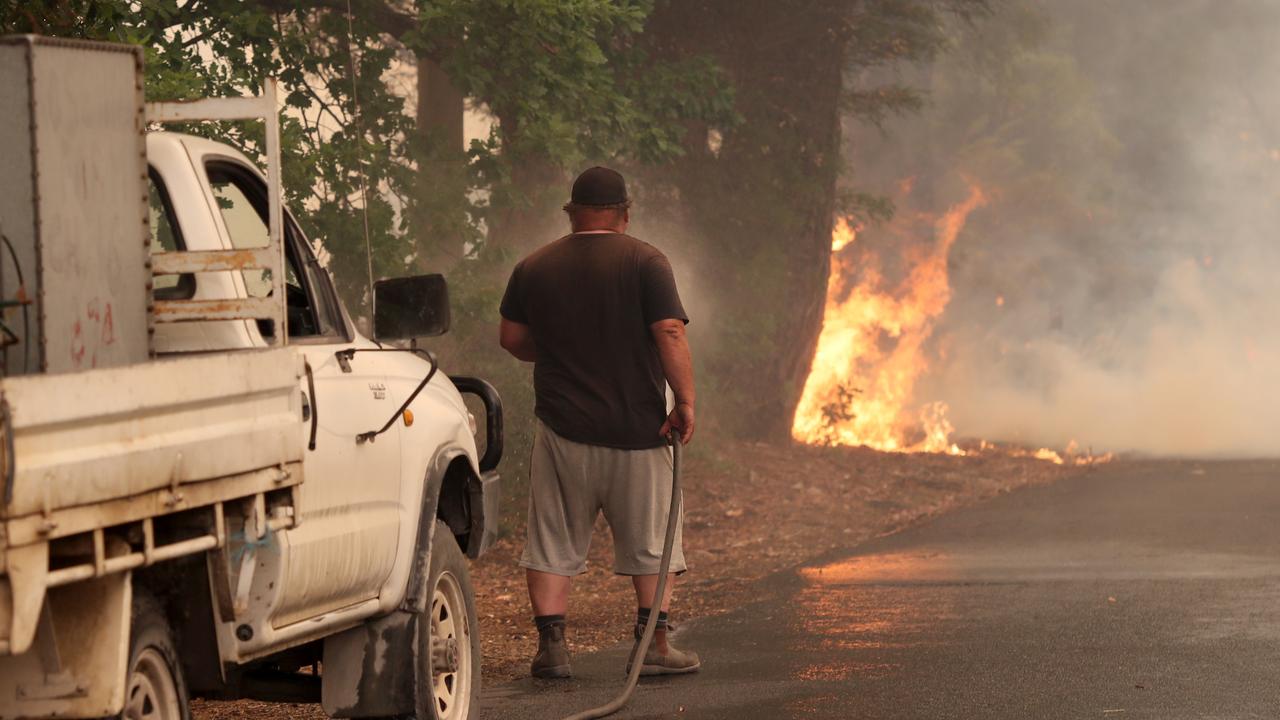Chief Public Health Officer Nicola Spurrier answers questions on Covid-19, including the likely end of lockdowns at 80 per cent vaccinated
Chief Public Health Officer Nicola Spurrier says once the state is 80 per cent vaccinated we’ll likely see the end of lockdowns and border restrictions. Here’s 14 other questions she answered.

Coronavirus
Don't miss out on the headlines from Coronavirus. Followed categories will be added to My News.
“Hideous” lockdowns and border closures can end by Christmas when South Australia likely hits an 80 per cent vaccination target, the state’s Covid-19 health chief says.
In an exclusive interview, chief public health officer Nicola Spurrier revealed heavy restrictions were not part of her road map out of the pandemic but said mask use was here to stay.
“I’m definitely not wanting to have lockdowns, they’re hideous,” Professor Spurrier said.
Her comments delighted the state’s business chiefs.
Modelling predicts 70 per cent of SA’s adults older than 16 will be fully vaccinated by November and 80 per cent by December.
Prof Spurrier had hoped to achieve it by October but said targets were dependent on supplies.
Figures show one in four SA adults is fully vaccinated with two doses of either Pfizer or AstraZeneca while almost half have had one jab.
In the wide-ranging interview, Prof Spurrier said there was no 100 per cent certainty in medicine but she hoped lockdowns, as well as the “stressful” hard borders between states, could end.
“We’re definitely looking at not having to have those sorts of heavy public health restrictions,” she said.
“But it may be that we’re going to have to have other sorts of public health activities such as the mask wearing. I think we should be looking forward to hopefully not … having to have any statewide lockdowns.
“Of course that would be fantastic. We would also be expecting that other states are also at high vaccination rates and therefore we could look at more free travel and not have to have those borders in place. Those are the two big ones.”
Her comments came as SA clamped down on arrivals from New Zealand following the spread of Covid there from New South Wales.
Business SA chief executive Martin Haese said it was “news we’ve been waiting for”. “With the vaccine rollout now gaining steam, businesses should be able to plan for an uninterrupted summer,” Mr Haese said.
Prof Spurrier said rules were still needed for venues such as nightclubs, which could host “super spreading events”. Other high-risk activities include dancing and home gatherings.
She warned mask use would stay for the longer term but declined to detail time frames as NSW grappled with its escalating crisis after a record 633 daily Covid cases on Wednesday.
Prof Spurrier said masks would stay for public transport, areas where crowds or customers gathered such as pubs and clubs – but not while eating – retail and schools. She also implored people to get Covid tested with even mild symptoms and said people needed to get jabbed before a likely new local outbreak.
“We’re in this situation until we can get everybody vaccinated,” Prof Spurrier said. “We’ve got a short period of time and I’m feeling the pressure.
“I can see what’s happening in NSW. We’ve already got Delta in the country and this is the time to get on and get vaccinated.”
Prof Spurrier urged people over 60 to get the AstraZeneca vaccine immediately and not hold out for Pfizer.
“If you’re in your 60s and above and you’ve been thinking ‘I’ll wait till Pfizer’, please, please do not do that,” she said.
“When we get cases here, you’re not going to get time to go and get vaccinated – and you need the two doses – you’re not going to have time, you have to go and get it now.”

Property Council SA executive director Daniel Gannon said jabs avoided “punishing” lockdowns.
“Behind every dark cloud there is a ray of hope and our strong vaccination uptake appears to be our passport out of this mess,” he said.
“The best thing we can do is to get a jab to help save jobs – it’s that simple.”
Australian Hotels Association SA boss Ian Horne welcomed Prof Spurrier’s “positive outlook” as uncertainty “shatters” morale.
“This forecast provides a potential exit out of the current damaging and debilitating trading conditions,” Mr Horne said.
Meanwhile, a NSW toddler, 2, and her parents, from Wilcannia, 200km east of Broken Hill, are infectious after attending a local funeral last Friday.
A sick Broken Hill woman, who is fully vaccinated, also attended.
Her SA-based partner, who is negative, is isolating at his home.
REPLAY: Q&A WITH PROFESSOR NICOLA SPURRIER
Q What is your overall message to the community?
A Professor Spurrier: One thing I would love is if people get sick, go and get tested, even those people who are vaccinated. Our testing rates are pretty low at the moment, and the only way we will know if we’ve got an incursion from NSW or Victoria, or indeed any other state, is if people are getting tested.
Q What do vaccination projections show?
A We’re estimating we’ll get to 70 per cent in November and 80 per cent in December. That’s two doses, so to be fully vaccinated. Now, that could speed up because we will get more vaccine in, and that’s one of the reasons we wanted to open up the bookings (to under 40s) so that at least we’ve got people booking. Maybe we’ll get there quicker.
Q What are the plans for when SA hits those targets?
A I think we should be looking forward to hopefully not … having to have any statewide lockdowns. Of course that would be fantastic.
We would also be expecting that other states are also at high vaccination rates and therefore we could look at more free travel and not have to have those borders in place. Those are the two big ones. But the things that we might need to keep going on with, we may need to continue with mask wearing. We will be still looking at the high-risk areas, such as where we know that there are super spreading events and where there’s large numbers of people coming together.
Q What restrictions would stay in place?
A The really important one we’ve got is a vaccine. But it’s likely we’re going to need some other controls. That will include some requirement for quarantining if people are coming from high-risk countries or where there’s another variant. Local public health controls in terms of Covid safety (would be): QR scanning and some masks; protecting our vulnerable communities, such as what we do in the hospitals and aged care, and; keeping up our capability for contact tracing.
Q Will fully vaccinated people get more freedoms earlier?
A I always have a population perspective. We know people who are vaccinated have a reduced risk of getting infected, but it’s not a zero risk. They can transmit the infection. People will not be able to do things differently at this point in time because we don’t have that high rate of vaccination across our population. If a person did pass a disease on, the virus will still takeoff.
Q Can you mix AstraZeneca and Pfizer vaccines?
A Theoretically you should be able to have a mixture of doses. However, all of the trials have not been completed yet. This is something the Australian Technical Advisory Group on Immunisation will be looking at longer-term.
Q Why would masks still be necessary when most people are jabbed?
A Unfortunately, the Delta strain has sort of supercharged this whole pandemic and it is quite different to where we were last year. Masks actually can be quite effective, and they are good because you can still go about and have the economy, have restaurants and have people able to get around and do what they need to do, but you’ve got another … control measure.
Q Where do you think we will need to wear masks in future?
A Well, if you think about it logically it’s when you’re going out in public spaces and you’re mixing with other people that you don’t know. So, generally, what we’re doing at the moment.
Q What’s the time frame?
A I think it’ll be longer-term rather than shorter and it’s because of the risk in NSW. If we didn’t have that risk, we wouldn’t be needing masks.
Q How much longer for masks in schools?
A I just can’t give you a definitive answer. We’ve got such a big risk interstate. There’s many schools that have been impacted, so it’s very clear that this can be transmitted quickly among students. I actually think young people are pretty sensible and … resilient, and I think they’ve just got on with what they need to do.
Q What is the Broken Hill risk?
A Obviously Broken Hill is right on our border. What people will have seen in NSW is it didn’t take very long for that outbreak to not stay just in the inner part of Sydney, even though they have very significant lockdowns. It has travelled because when people move, the virus is able to move.
Q Can NSW get on top of the surge in new cases?
A Look, it’s going to be very difficult. It’s a very tricky situation for them at the moment, they’re throwing everything at it. They are really pushing the vaccination rates up, which is fantastic. Their testing numbers are astronomical. I would like to remain positive.
Q Why is the Delta strain so contagious?
A When we’ve looked at how much virus people have … in their nose and mouth, there’s a lot more there. It means it’s easier for it to then get into the atmosphere and pass on to other people. Last year, it was … two and a half people that one person could infect with the Wuhan strain. If we didn’t have any restrictions (or) masks … that one person would (now) pass it on to eight people. And those eight would pass it on to eight others. You can imagine if that kept going it would just whoosh up and you would have a really big outbreak really, really quickly.
Q Are you concerned about people’s long-term mental health?
A I am absolutely concerned about it. We need to be hopeful and think of all the positives. I do always think of businesses that have had to close through the pandemic. We thrive when we’re part of vibrant communities and we come together. And I think (extended lockdowns) really do have a significant impact on people.
Q Do you ever sleep?
A I’m a really good sleeper. I go to bed early and I get up early and it’s not often I wake up at night. It’s a very good skill to have. I work clinically in the hospital as a paediatrician, and you learn to fall asleep quickly because you’re never sure what time you’re going to be woken up overnight.




